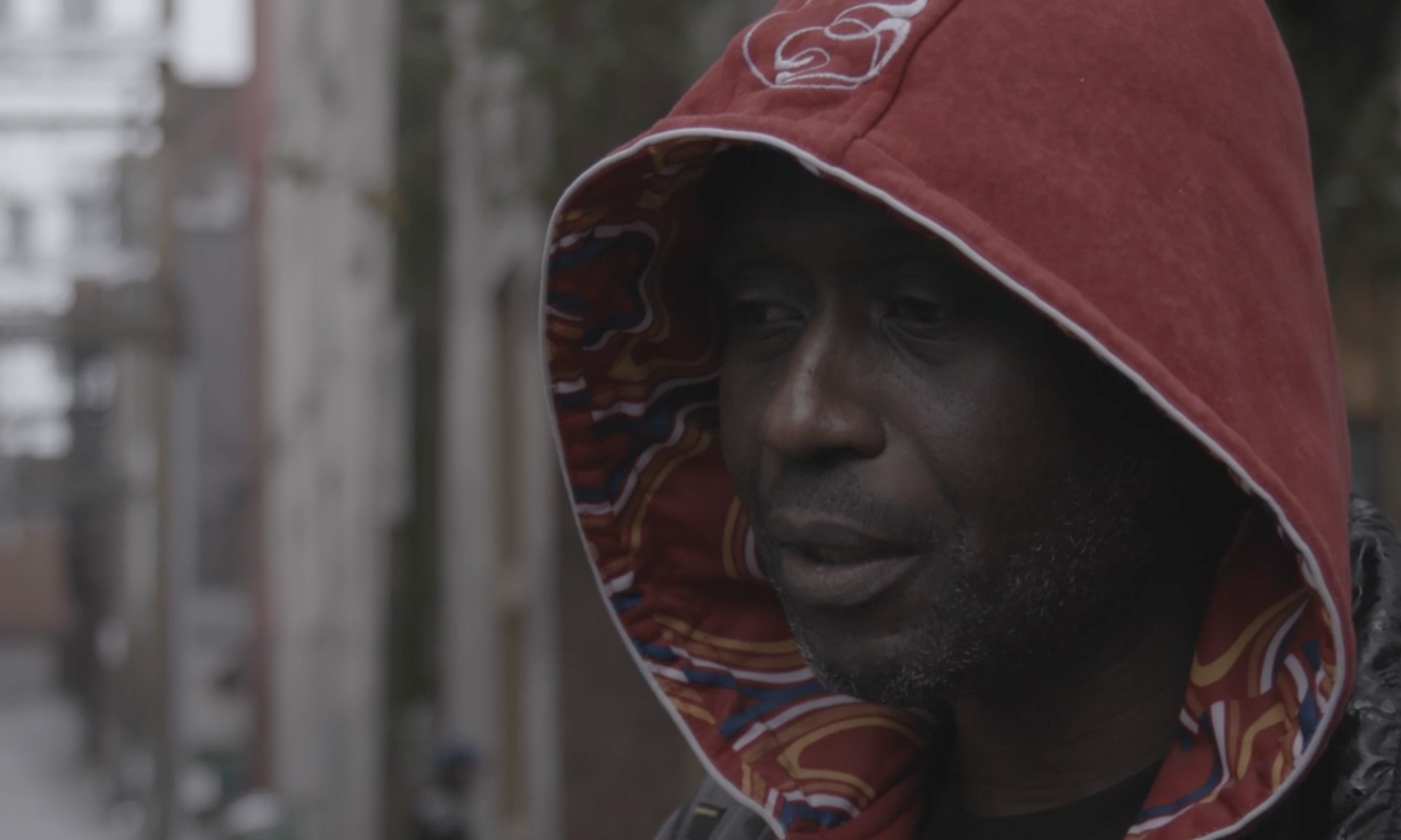Supervised injection at Vancouver's Crosstown Clinic. Photo by Jackie Dives
Before British Columbia declared COVID-19 spread a public health emergency Tuesday, the province was already dealing with the long-simmering emergency caused by a tainted drug supply.Since April 2016, when B.C. first declared the overdose crisis fueled by super-potent synthetic opioids a public health emergency, drug users often heard the refrain “never use alone.” In Vancouver and across Canada, that rallying cry led to the proliferation of overdose prevention sites providing clean needles, supervision, and overdose-reversing naloxone to dependent daily users.But now, at a time when residents are being asked to isolate themselves and avoid group gatherings, the very concept of supervised drug use becomes a potential health risk—especially for immune-compromised users.Insite, Vancouver’s oldest and most well known supervised injection site, has brought in new restrictions on the number of people who can enter the waiting room and injection stations.Though overdose prevention sites run by the Portland Hotel Society have so far kept their doors open, some do-it-yourself efforts to keep drug users safe are moving online.Alex Betsos, a cofounder of the B.C. harm reduction initiative Karmik, took to a local community Facebook group that sprung up around coronavirus response to share best practices for taking drugs in isolation.The post points out that some symptoms of withdrawal and COVID-19 are similar, and that alcohol, opioids, and benzos may worsen breathing difficulties. A package compiled by drug policy researchers recommends preparing for a possible involuntary withdrawal, as drug supplies will likely be interrupted by closures and isolation. If injecting with another person, researchers recommend keeping a six foot distance, and never sharing supplies.“Also, if someone needs a digital spotter while they’re in social isolation, you can shoot me a message,” reads Betsos’s post.The offer is not unlike other trip sitting resources that have existed online for ages—it just so happens to be a time where an unprecedented amount of people are isolated from their usual networks.“It’s something that folks do for each other already,” Betsos, a drug policy researcher and board member with Canadian Students for Sensible Drug Policy, told VICE. “Just having a friend that you can call, who you can talk to while you do your shot or however you consume your drugs… Just to make sure you’re OK, with an ability to call 911 if needed.”While Betsos said he hadn’t been taken up on his offer yet Wednesday, he expects there will be more need for community support as Canada’s health system is pushed closer to full capacity. In the case of an overdose or unresponsive caller, he said it’s important to have a name and address on hand to help first responders deal with the situation. Betsos has worked as a trip sitter for Karmik, which provides naloxone and other harm reduction resources for parties and festivals. “I’ve sat in sanctuaries for many, many hours talking to lots of folks who use various kinds of drugs,” he said. Though opioid users may face the highest risks during a pandemic, party drugs like MDMA, ketamine, shrooms, acid, and coke can also be riskier in isolation. “It’s just doing that kind of work in an online format,” he said.Betsos said he was motivated to reach out after seeing Vancouverites posting about being unable to access their regular medical prescriptions for antidepressants or ADHD medications. “Some of those drugs have very dangerous withdrawal symptoms,” he said. On Wednesday, B.C. announced that pharmacists will now be able to refill meds without an updated prescription from a doctor.Vancouver’s Downtown Eastside is a central support system for many low-income dependent drug users, and it’s not yet clear which resources will remain available throughout the pandemic. As of Wednesday, the Vancouver Area Network of Drug Users office remained open with some capacity restrictions, but a VANDU representative was not available to comment on possible closures or programming changes.Supervised injection itself is the product of decades of grassroots community action, and Betsos sees online supervision as a logical extension of that movement. “Even places like Insite originally started more underground, by community members,” Betsos said. “It only became formalized later.”Portland Hotel Society program director Susan Alexman told VICE the non-profit will continue implementing handwashing and social distancing measures at their housing and harm reduction operations, including Insite. “We find people are still coming in, and are being very respectful of the new rules,” she said.Alexman said PHS has also increased community patrols of streets and alleys to provide both COVID-19 and overdose response. But even those resources can’t reach immune-compromised drug users who have been directed not to leave their homes.That’s why Betsos hopes to use some of his own isolation time chatting with drug users who need support. “I’m kind of in quarantine right now, I can’t really go out and do anything,” he said. “It just kind of popped into my head because some folks might not feel like they have communities where they can connect.”Follow Sarah Berman on Twitter.
Betsos has worked as a trip sitter for Karmik, which provides naloxone and other harm reduction resources for parties and festivals. “I’ve sat in sanctuaries for many, many hours talking to lots of folks who use various kinds of drugs,” he said. Though opioid users may face the highest risks during a pandemic, party drugs like MDMA, ketamine, shrooms, acid, and coke can also be riskier in isolation. “It’s just doing that kind of work in an online format,” he said.Betsos said he was motivated to reach out after seeing Vancouverites posting about being unable to access their regular medical prescriptions for antidepressants or ADHD medications. “Some of those drugs have very dangerous withdrawal symptoms,” he said. On Wednesday, B.C. announced that pharmacists will now be able to refill meds without an updated prescription from a doctor.Vancouver’s Downtown Eastside is a central support system for many low-income dependent drug users, and it’s not yet clear which resources will remain available throughout the pandemic. As of Wednesday, the Vancouver Area Network of Drug Users office remained open with some capacity restrictions, but a VANDU representative was not available to comment on possible closures or programming changes.Supervised injection itself is the product of decades of grassroots community action, and Betsos sees online supervision as a logical extension of that movement. “Even places like Insite originally started more underground, by community members,” Betsos said. “It only became formalized later.”Portland Hotel Society program director Susan Alexman told VICE the non-profit will continue implementing handwashing and social distancing measures at their housing and harm reduction operations, including Insite. “We find people are still coming in, and are being very respectful of the new rules,” she said.Alexman said PHS has also increased community patrols of streets and alleys to provide both COVID-19 and overdose response. But even those resources can’t reach immune-compromised drug users who have been directed not to leave their homes.That’s why Betsos hopes to use some of his own isolation time chatting with drug users who need support. “I’m kind of in quarantine right now, I can’t really go out and do anything,” he said. “It just kind of popped into my head because some folks might not feel like they have communities where they can connect.”Follow Sarah Berman on Twitter.
Advertisement
Advertisement

Advertisement
